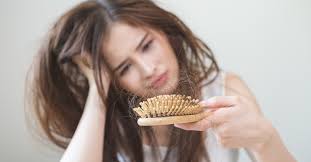Hair loss is a common concern for many people, with various factors contributing to changes in hair health. While causes may include genetics, stress, or lifestyle choices, nutrition also plays a key role in maintaining healthy hair. Diet impacts the strength, growth, and condition of your hair, making it an area worth exploring if thinning or shedding is a concern.
Can Diet Impact Hair Health?
What you eat can have a noticeable effect on the condition of your hair. Hair is made of keratin, a protein that requires nutrients to grow and remain healthy. Without adequate nutrition, hair may become more prone to breakage or fall out more easily. Balanced meals provide the foundation for maintaining hair that looks and feels healthy.
A diet lacking in variety or rich in processed foods may fail to provide the nutrients needed for strong, resilient hair. Hair cells grow continuously, requiring a steady supply of nutrients from the bloodstream. When certain nutrients are missing, the hair’s growth cycle may be disrupted, leading to issues like slower growth or thinning.
Diet patterns influence not just hair growth, but also scalp health. A well-fed scalp supports healthy follicles, which is where each strand of hair begins its life. For those experiencing hair loss, addressing gaps in dietary habits could make a difference over time.
Which Nutrients Support Hair Growth?
Certain nutrients are particularly beneficial for promoting strong and healthy hair. Including these in your meals regularly can help support your hair’s natural growth cycle:
- Protein: Hair is composed mostly of protein. Eating lean meats, eggs, nuts, and beans provides the building blocks for growth and repair.
- Omega-3 Fatty Acids: Found in fatty fish, flaxseeds, and walnuts, these support scalp health and hydrate hair strands.
- Iron: Iron facilitates oxygen delivery to hair follicles. Foods like spinach, red meat, and lentils can help maintain proper levels.
- Biotin: This B vitamin can be sourced from eggs, almonds, and sweet potatoes. It aids in strengthening hair and supports its growth cycle.
- Zinc: Necessary for tissue growth and repair, zinc can be found in shellfish, seeds, and dairy products.
A diet rich in these nutrients forms the backbone of healthy hair. Including a variety of whole foods is key to meeting your nutritional needs and keeping your hair in good condition.
Can Vitamins Reduce Hair Loss?
Vitamins play a key role in supporting hair growth and minimizing shedding by improving the health of hair follicles. When hair loss becomes noticeable, addressing specific vitamin deficiencies can positively impact the hair growth cycle.
- Vitamin D: Helps in follicle creation, necessary for the growth of new hair strands. You can boost your Vitamin D levels through sunlight exposure and fortified foods like milk or plant-based alternatives.
- Vitamin E: Known for its antioxidant properties, it protects cells from damage and promotes a healthy scalp. Nuts and seeds are excellent sources of this vitamin.
- Vitamin C: Supports collagen production, which strengthens hair structure. It also aids in iron absorption, a key mineral for healthy hair. Citrus fruits, bell peppers, and strawberries are great sources of Vitamin C.
While vitamins can positively impact hair health, they work best as part of a balanced diet. Over-supplementing without professional guidance may lead to side effects. If hair loss persists, consulting a healthcare professional to address deficiencies can provide more effective and lasting solutions.
Consult a Specialist
Hair loss can result from factors beyond nutrition, such as health conditions, stress, or genetics. Consulting a specialist can help identify the cause and provide tailored advice, including treatment options or dietary adjustments. Combining nutritious eating with professional guidance can support healthier hair and take the guesswork out of managing hair loss..

